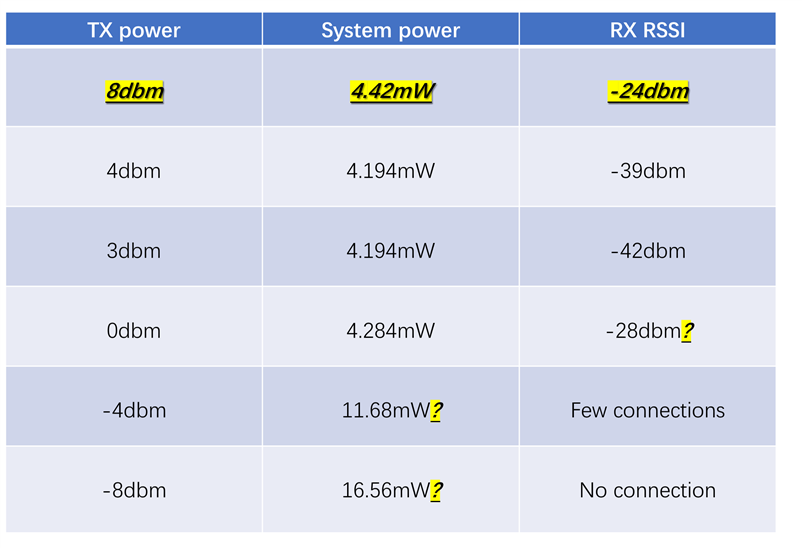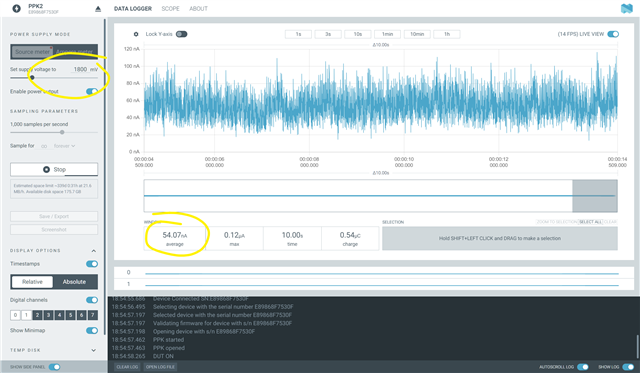I designed a PCB with only the nRF52833 chip and antenna. I want to learn about the relationship between different TX power levels and the overall power consumption of the chip.
I am using a power profiler with a 1.8V supply and reading the average current via software.
During the tests, the TX RX position remains fixed. I obtained the following results:

Why is the received signal strength higher when TX power is 0 dBm compared to when TX power is 4 dBm? Why does the overall power consumption increase when the TX power is reduced to negative values? I look forward to your response.:)



